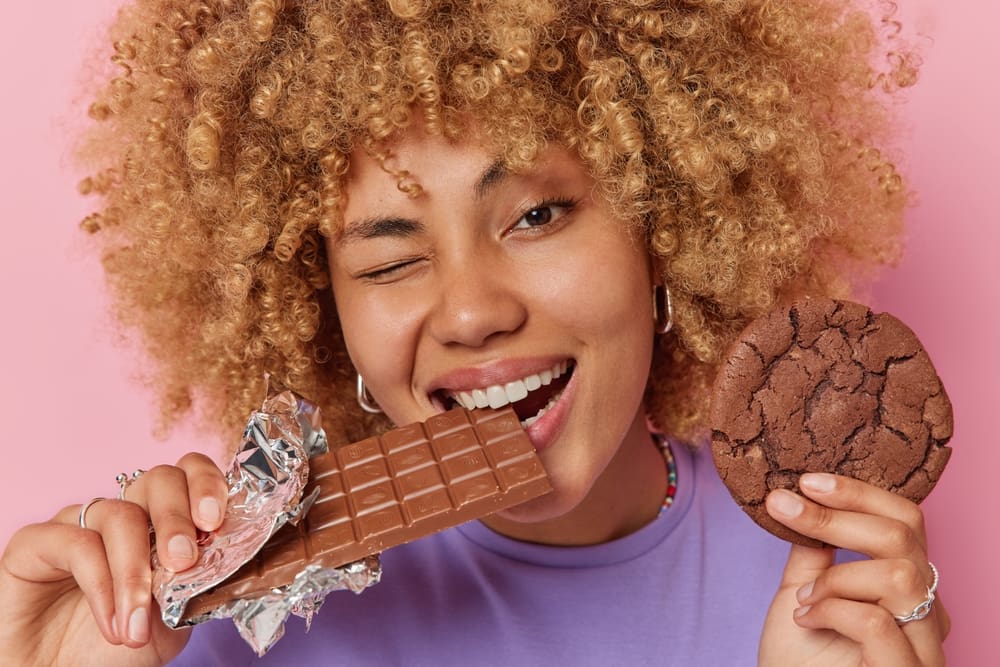We’ve all been there: late at night — maybe watching TV or getting ready for bed — when suddenly, the urge to dive into a sweet treat becomes almost irresistible. Nighttime sugar cravings are a common challenge for many people, often sabotaging diet efforts and disrupting sleep. Understanding how to effectively manage these cravings can help maintain a healthier lifestyle while ensuring your sleep isn’t compromised by a late-night sugar rush. In this article, we’ll explore practical strategies to curb sugar cravings at night, making your wellness goals more attainable and sustainable.
Understanding sugar cravings
Why cravings occur at night
Nighttime cravings can be influenced by a variety of factors. Psychological triggers, such as stress and emotional eating, often play a significant role. Biologically, the body’s internal clock, or circadian rhythm, may signal a need for more energy as the day ends. Additionally, if your diet lacks certain nutrients or you haven’t consumed enough calories during the day, your body might push you toward quick energy sources like sugar.
The impact of sugar on sleep
Consuming sugar before bed can lead to a spike in blood sugar levels, followed by a sharp drop, disrupting your sleep cycle. This can lead to a restless night and grogginess the next day, creating a vicious cycle of poor sleep and increased cravings.
Strategies to manage nighttime sugar cravings
Setting a healthy routine
- Balanced dinner: Ensure your last major meal of the day is well-balanced, incorporating proteins, fats and fibers that will keep you fuller for longer and stabilize blood sugar levels.
- Mindful snacking: If you must snack, choose options that satisfy your craving without spiking your blood sugar, such as Greek yogurt with a sprinkle of cinnamon or a small piece of dark chocolate.
Mindfulness and Emotional Regulation
- Identify triggers: Understanding what triggers your cravings can be crucial. Are you bored, stressed or treating food as a reward? Addressing the root cause can diminish the urge to indulge.
- Mindful eating practices: Practicing mindfulness can help you recognize the difference between actual hunger and habit. Before reaching for a sweet, take a moment to reflect on what you are feeling and why.
Sleep hygiene
- Optimize your environment: Enhancing your sleep environment — keeping it dark, cool and quiet —can encourage better sleep, reducing the likelihood of waking up hungry.
- Establish a presleep routine: Activities like reading or meditating before bed instead of screen time can promote better sleep and reduce the impulse to snack.
Alternatives to sugar
- Healthy substitutes: Keep healthier alternatives readily available. Snacks like mixed nuts, seeds, or fruits like berries offer natural sweetness along with nutrients and fiber.
- Herbal teas: Drinking a cup of herbal tea such as chamomile or peppermint can satisfy late-night cravings and help signal to your body that it’s time to wind down.
Engaging in physical activity
Regular physical activity not only helps in overall health but also improves sleep quality and mood, both of which can reduce the frequency and intensity of sugar cravings.
Managing nighttime cravings
Managing sugar cravings at night effectively is an achievable goal that can lead to significant improvements in both your health and your quality of sleep. Understanding why these cravings occur — be it due to emotional triggers, dietary deficiencies or poor sleep habits — is the first step toward controlling them. Once you identify the root causes, employing targeted strategies such as maintaining a balanced diet, practicing mindfulness, enhancing sleep hygiene and keeping healthier snack options on hand can make a substantial difference.
Consistency in applying these techniques is crucial; habits take time to form but once established, they can significantly diminish the frequency and intensity of night-time cravings. It’s important to personalize these strategies to fit your lifestyle and needs, as this will help you stick with them in the long run. Moreover, combining these efforts with regular physical activity not only aids in managing cravings but also boosts overall health.
As you integrate these practices into your daily routine, you’ll find that resisting the urge to indulge in sugary treats becomes easier. This change can lead to more restful nights, better control over your diet and a healthier, more balanced life overall. Thus, by understanding and addressing sugar cravings effectively, you’re setting yourself up for success in achieving and maintaining optimal wellness.
This story was created using AI technology.












